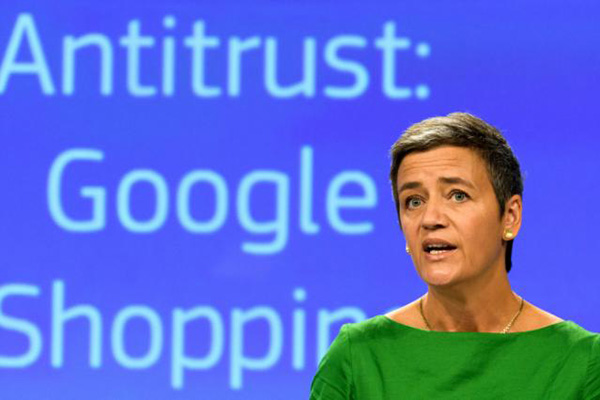
Who said that the EU was powerless in the face of a globalisation it had itself promoted, and that in its technological aspects had become Americanised (along with growing Chinese influence)? The EU is proving to have a capacity for global influence on normative issues. Its internal regulations are in some cases being adopted beyond its borders, influencing what other countries and technology giants do. The fines levied on Google (for matters relating to free competition) and Apple (for paying insufficient tax) in 2017, following the one levied on Microsoft (in 2013, also for stifling competition), are being mirrored elsewhere, inspiring similar initiatives in other parts of the world where the European measures are being given careful attention, such as Latin America. The recent EU Court of Justice ruling on Uber, classifying the platform as a transport service, and bringing obligations in its wake, will have repercussions beyond the EU. Having said that, it is by no means clear what Europe can do to defend the net neutrality –despite the fact it is enshrined in its legislation– that the Trump Administration has done away with.
In 2017 the EU slapped a record €2.42 billion fine on Google/Alphabet on the grounds that its online purchasing system constituted an abuse of its position. It is the largest fine ever levied by the European Commission. It also pursued Apple for failing to pay €13 billion in taxes owed to Ireland (where the company has sited its European headquarters in order to pay less). Apple is appealing to the EU Court of Justice, which will have the last word. It was also Europe that instigated proceedings at the World Trade Organisation that led to a fine of US$5.7 billion (approximately €5.4 billion) being imposed on Boeing for illegal state aid. Lastly, the EU Court of Justice has ruled that Uber is a transport service and not a collaborative digital platform, pre-empting the possibility of it being operated by individual drivers, together with other requirements. The ruling does not affect the situation of those European countries like Spain that already had such requirements, but it may serve as inspiration to non-EU countries. In other words, it is not simply a question of power but also of influence.
In the context of globalisation, its judicial and institutional framework and the size of its internal market, the EU has a normative capability with effects that go far beyond its borders. As far back as 2002, drawing inspiration from Johan Galtung’s idea of ‘ideological power’ (1973), Ian Manners introduced the concept of ‘Normative Power Europe’, which he defined as the ‘ability to shape the conceptions of normal in international relations’. This means that the EU has emerged as an ‘ideational’ actor, with common principles, which acts to extend norms in international relations. It was originally a political concept –involving democracy, the rule of law and international law– both inward and outward-facing, which with globalisation is proving to have a markedly economic dimension. And this fundamentally emanates from the Court of Justice, from the services provided by the European Commissioner for Competition –with her ability to coerce using monetary sanctions– and from the European Parliament as the legislative power.
However, its own internal shortcomings sometimes prevent it from discharging these normative functions. After the EU instructed Apple to pay what it owed to Ireland in taxes, the Irish administration declined to bill the corporation for its debts. The large platforms, almost all of them American, although some are also Chinese, continue taking advantage of the fiscal inconsistencies between EU member states. In other words, the EU’s true normative capability needs to start from within.
It remains to be seen whether or not with Brexit, the UK (if it remains united) succeeds in escaping from this normative power wielded by the EU. As things stand, in the transition period envisaged for the departure, it is quite the reverse. And afterwards, it is doubtful whether normative convergence will really be replaced by a profound parting of the ways between London and Brussels, or the power and influence of the EU will continue to hold sway.
The disparity in legislation means that the economic models of the US and the Europeans (among whom legal codes vary) tend to diverge, which could pose problems for the governance of globalisation, already placed in doubt by the Trump Administration. But not everything comes under the remit of Washington. In some cities, such as San Francisco, the operations of the Airbnb rental platform have been curtailed, while Uber and similar services are coming under increasing scrutiny.


